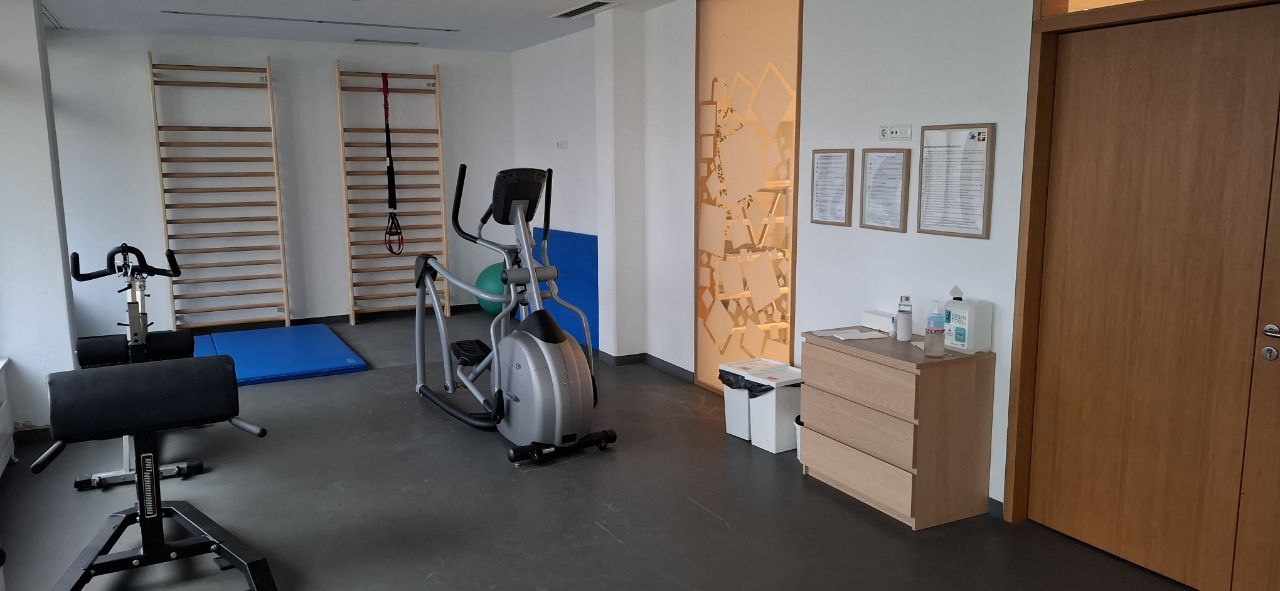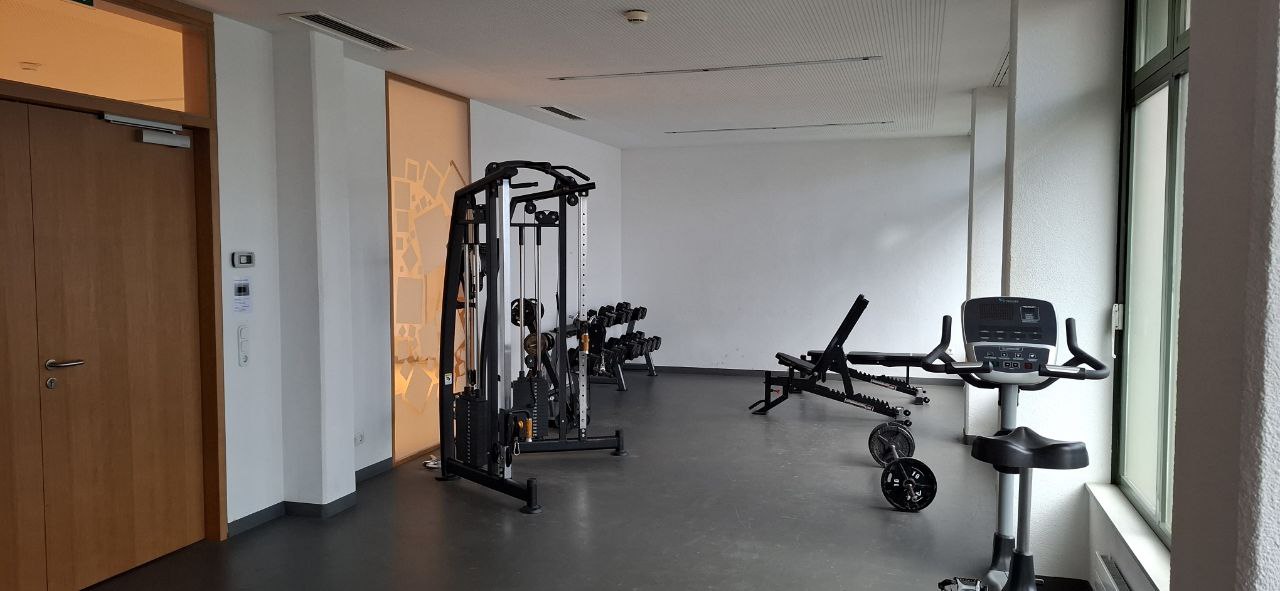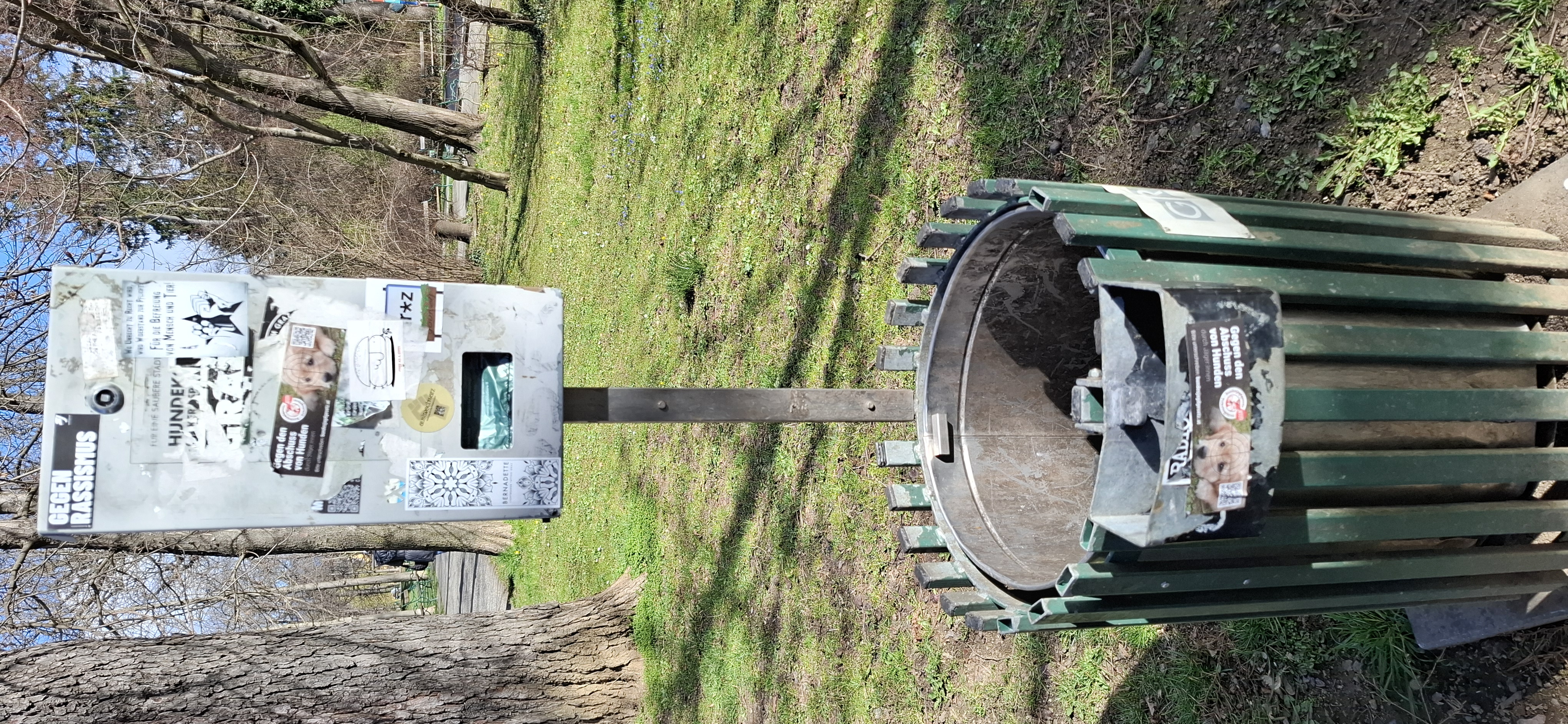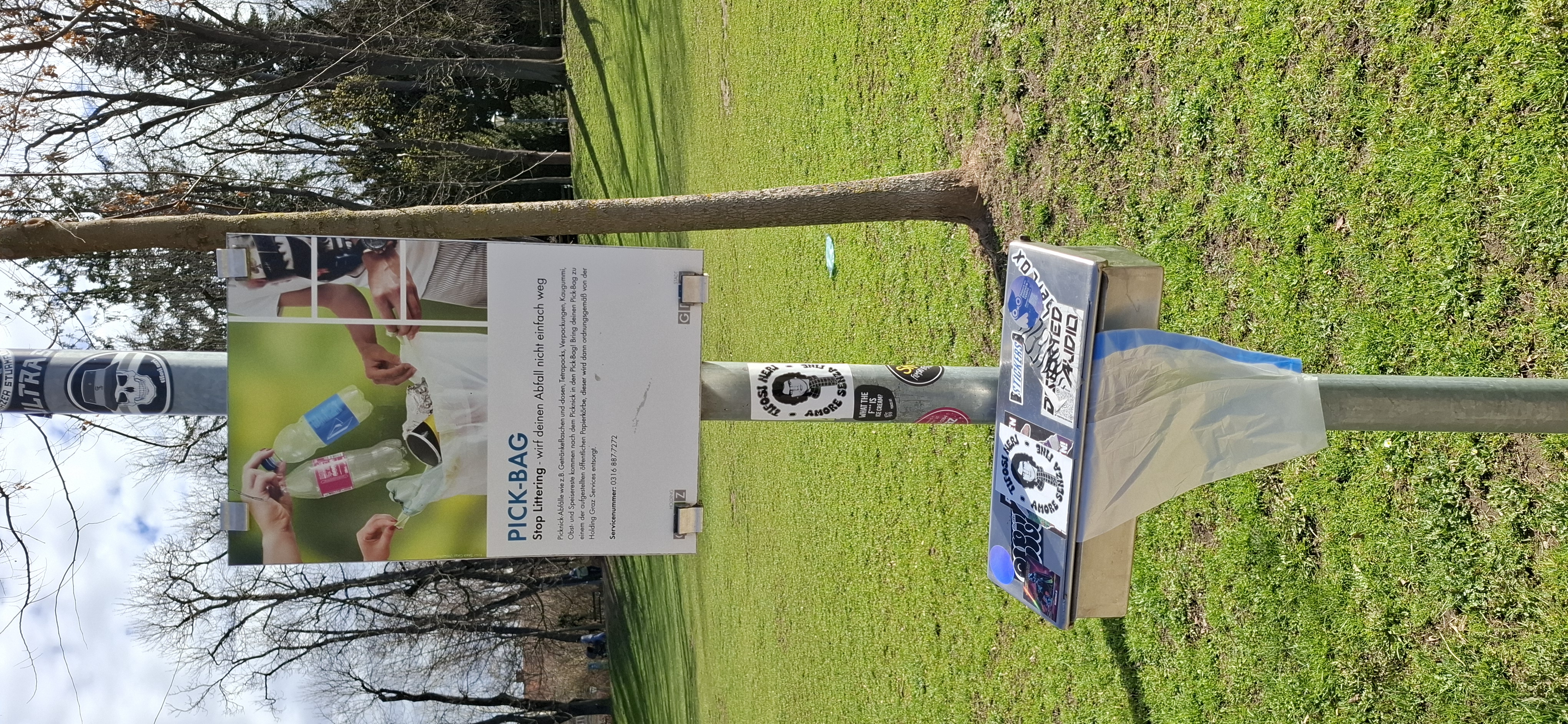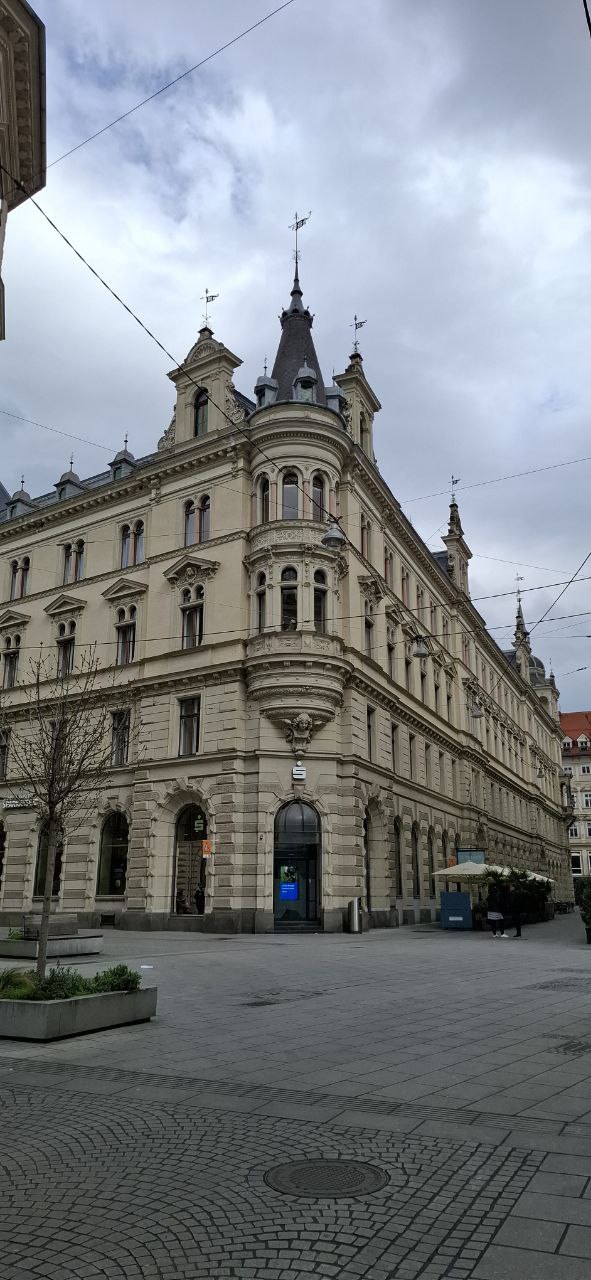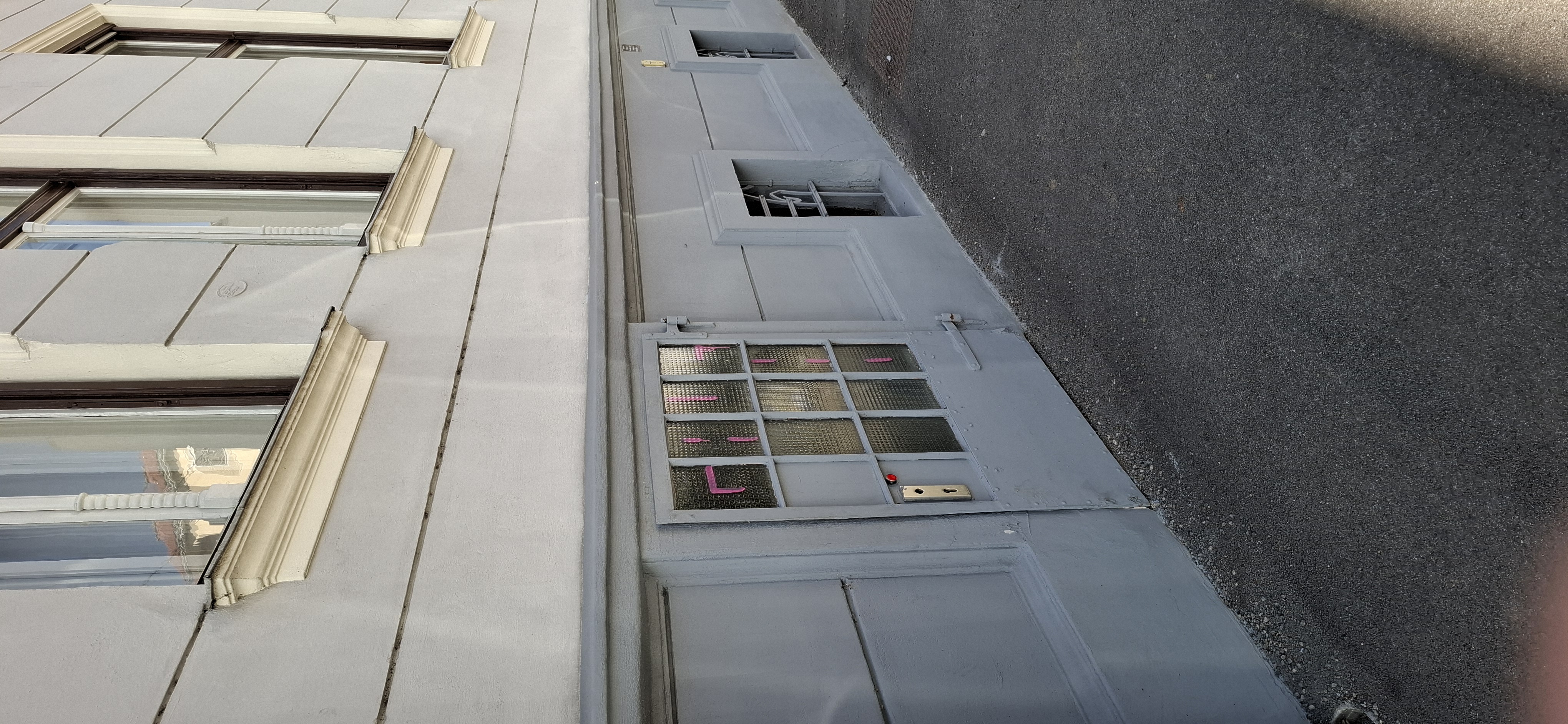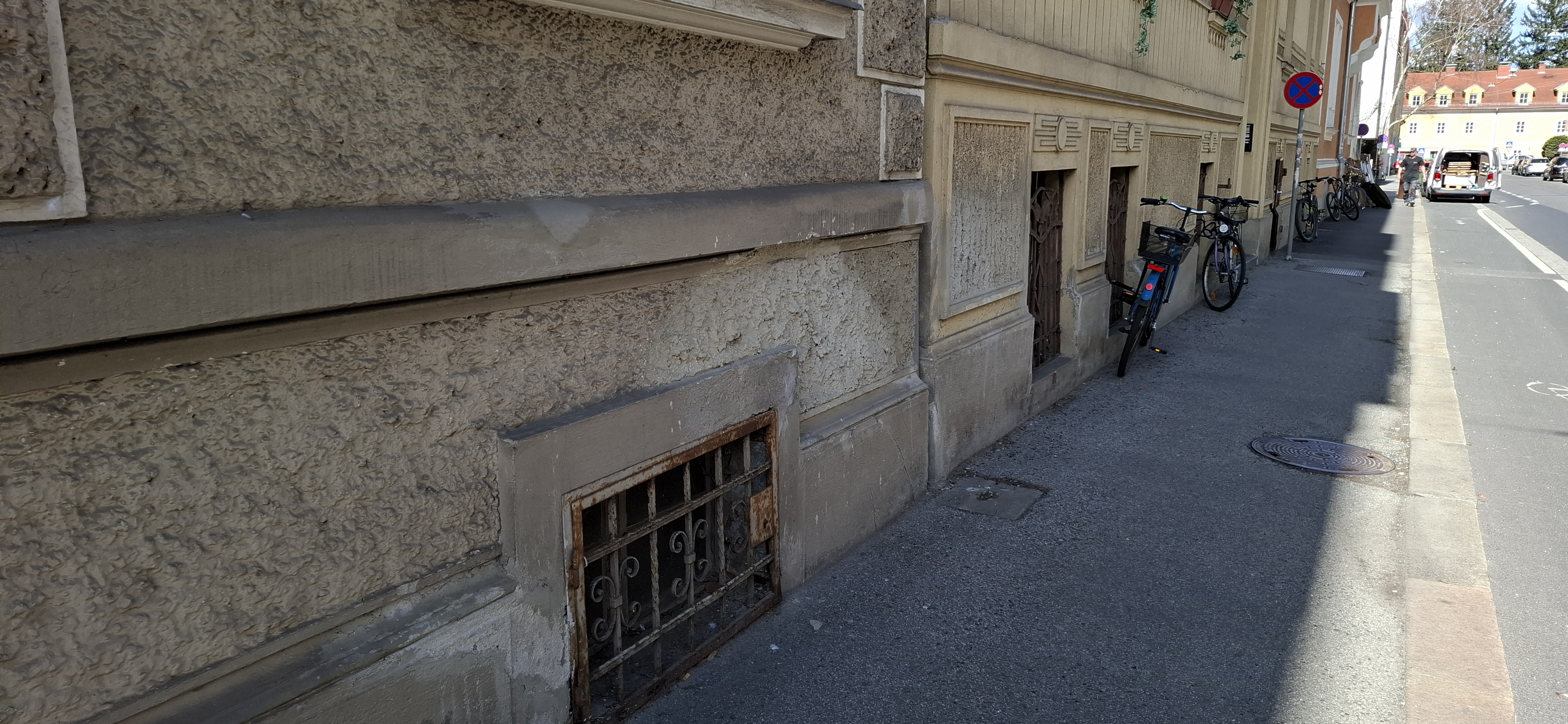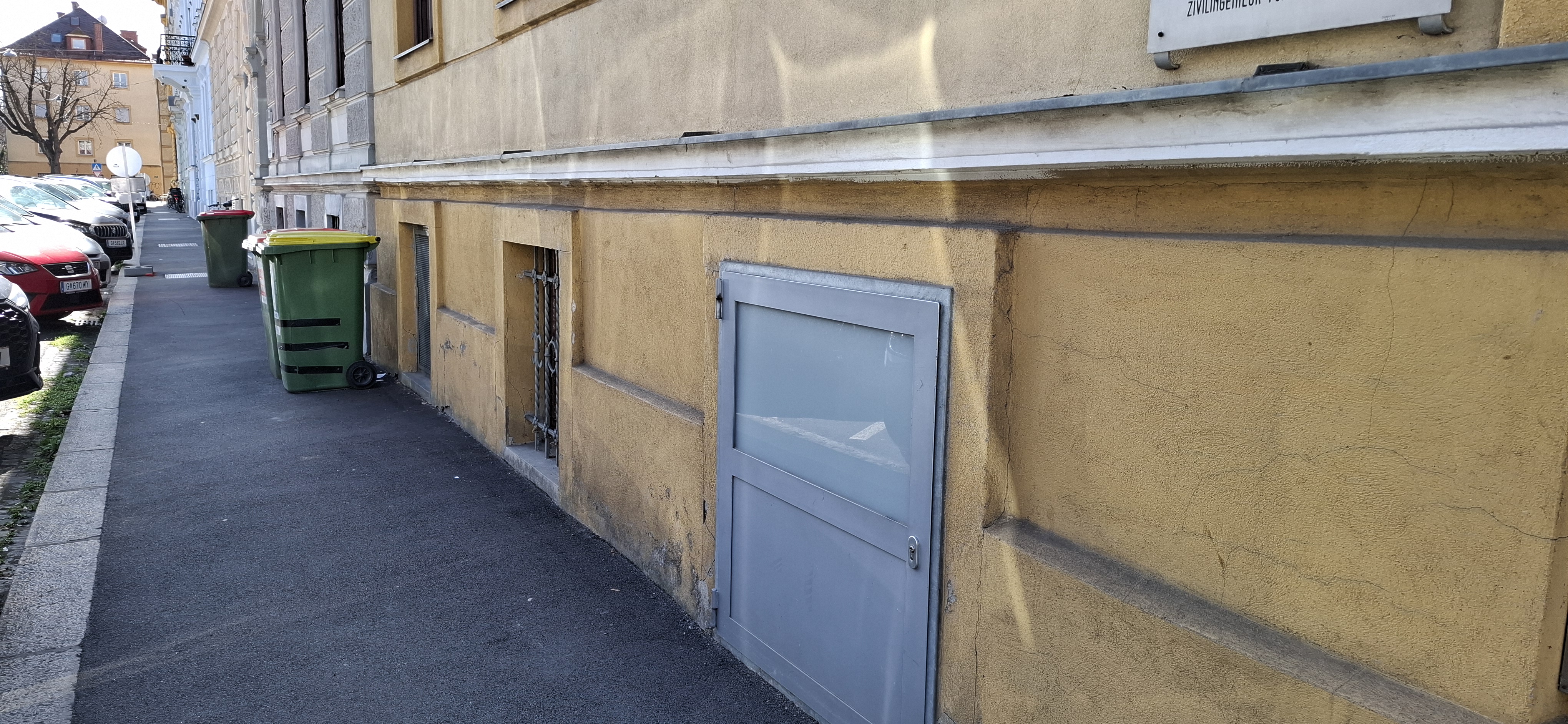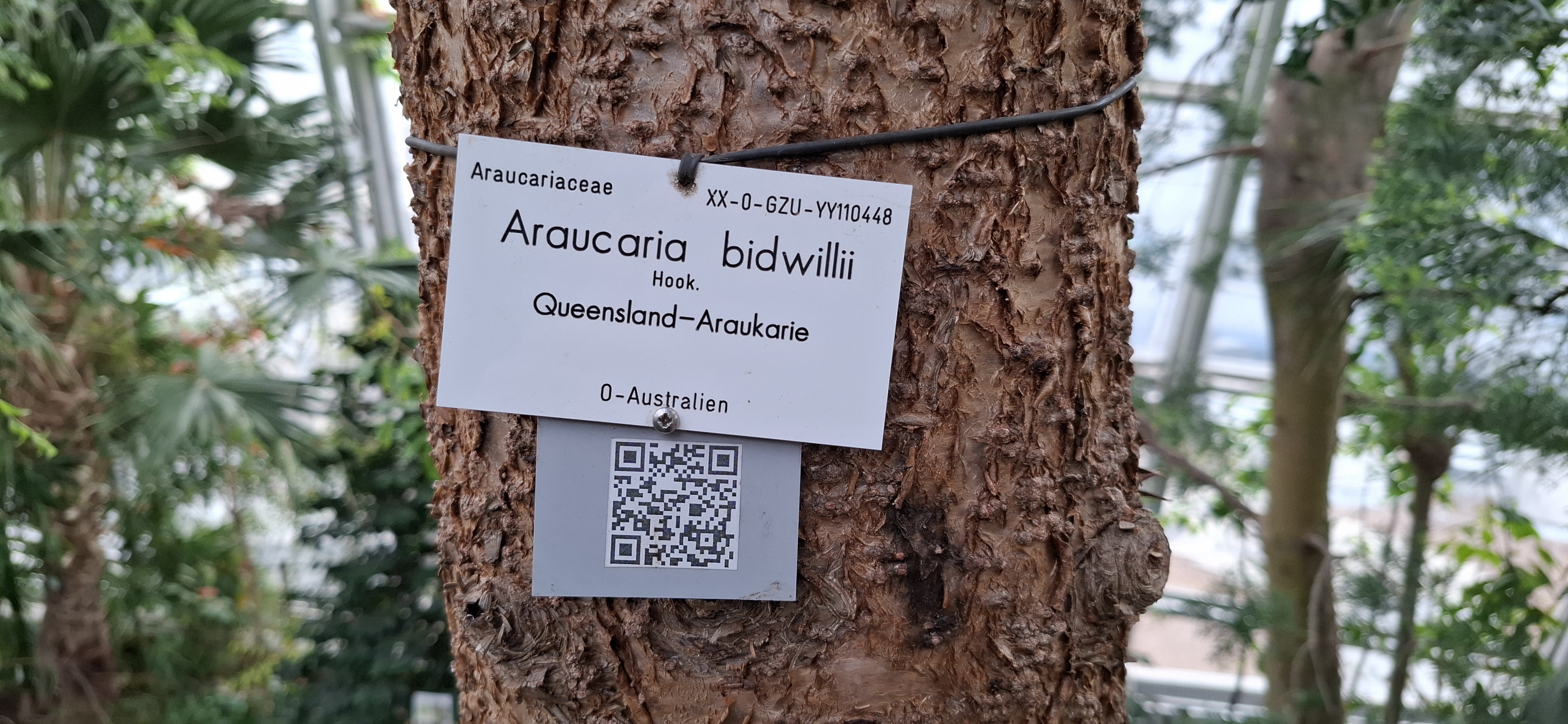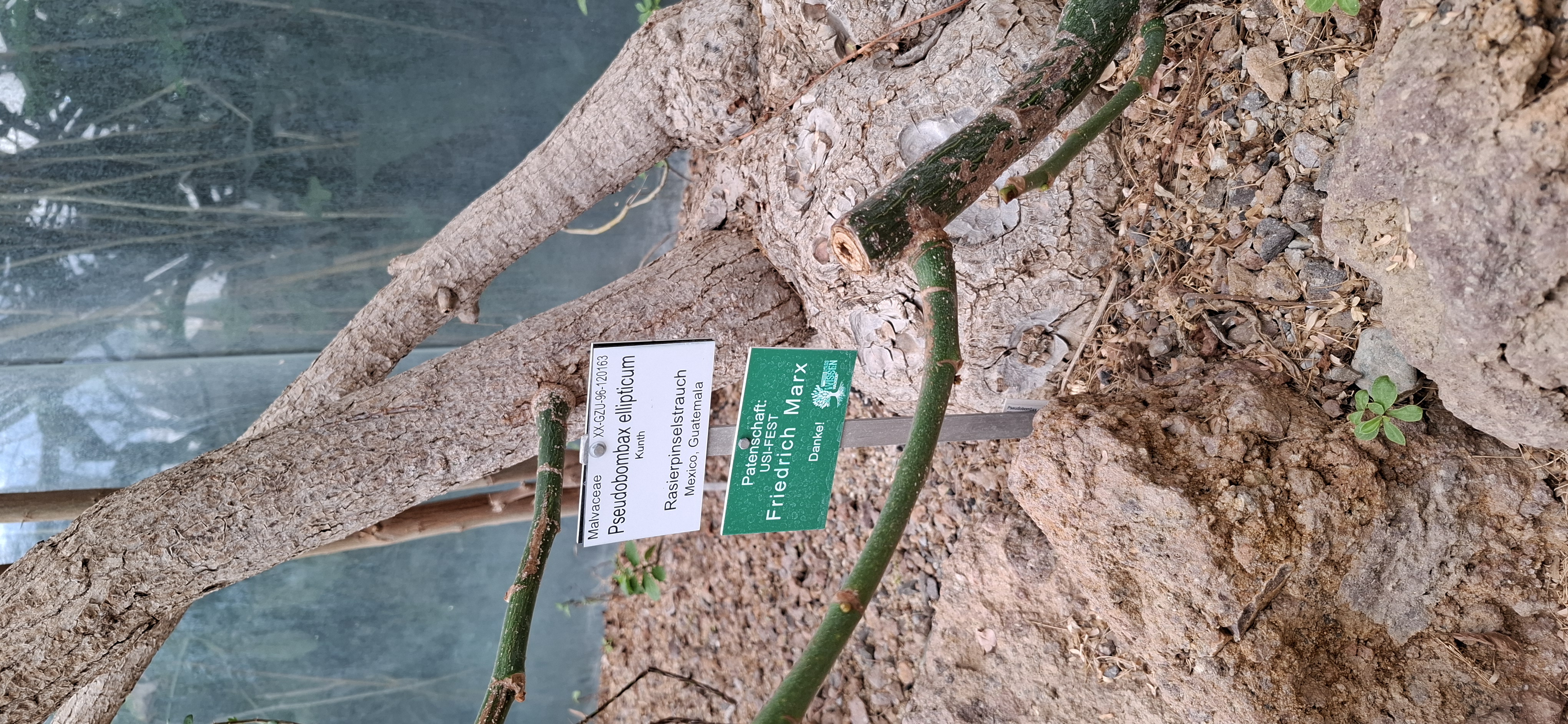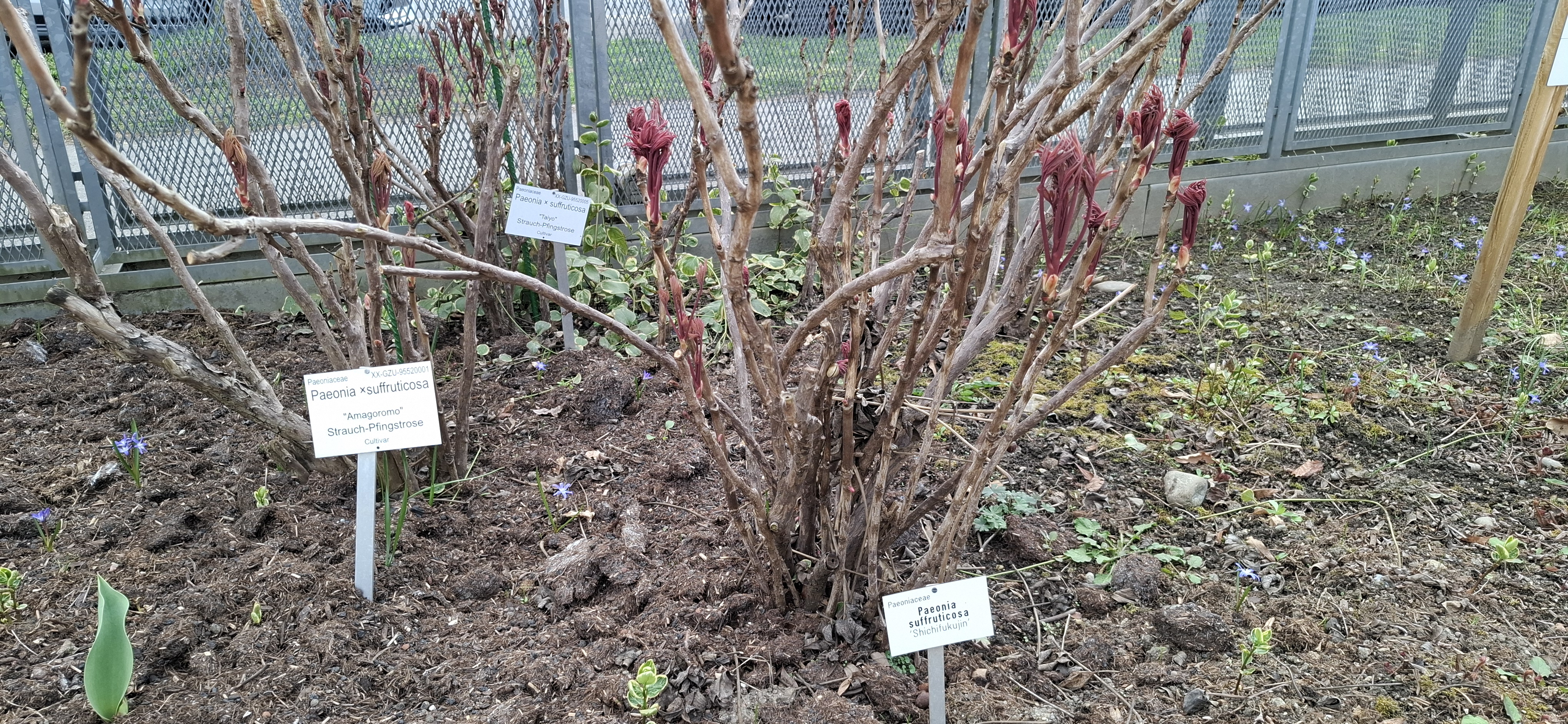Things from Graz
Random stuff that caught my eye in the last year
Epistemic status: based on one year of living in Graz, with no formal study of its culture
■ Societal things
└─ Knocking at the end university lectures
Students knock on their desks at the end of every university lecture as a form of applause.
It’s actually better than clapping (less noise) but I was surprised to see that they do it after every single lecture. In Italy, it’s common to clap only at the end of a course, as a way to thank the professor for the effort.
Looks like Austrians are more thankful than Italians.
└─ Chocolate before the holidays
On the last working day before Christmas and before Easter, the head of the department brought themed chocolates for everyone.
This is not statistically meaningful as an indicator of Austrian working ethics, but I felt like mentioning it.
└─ Eiertappen
I played Eiertappen with a senior professor (the same one who brings chocolates).
We used colored hard-boiled eggs.
I lost.
Then I ate two hard-boiled eggs.
Addendum: apparently it’s a common game in Slavic countries, as my Russian friend says. Not in Italy tho.
└─ Someone at the grocery shop
I was standing in line at the checkout.
In front of me, there was a couple, a guy and a girl.
She looked ordinary.
He was shirtless, wearing some non-work-related harness.
They paid, left, and no one said a word.
The cashier smiled and said goodbye.
It was Saturday morning in August.
└─ Baba (not Papa)
It’s the Austrian way of saying goodbye.
But the b in baba is pronounced so strongly it sounds like a p, which makes it basically papa, which means “father” in Italian and many other languages.
Also: it sounds funny.
└─ Barefoot shoes and office slippers
I was happy to discover that in Graz a lot of people wear barefoot shoes.
About a year before moving to Austria, I had bought my first pair and fallen in love with them. But they’re not exactly conventional-looking, especially by Italian standards. So finding myself among people who use them gave me psychological relief.
It’s not the only case where Austrians prefer practicality over aesthetics: at work, it's typical to wear slippers instead of shoes.
In Italy, this is unthinkable.
└─ Getting paid for plasma
In Austria, you can donate plasma in exchange for money. You are not getting paid, it's a compensation.
In Italy, this is illegal.
The reasoning behind the Italian approach includes two main points:
- Reinforcing the altruistic nature of donation
- Avoiding situations where financial incentives might push people in poor health to donate (something supported by scientific papers and articles)
Both are valid motivations.
Still, this doesn’t help solve the ongoing blood shortage in Italian hospitals. I wonder if there could be a middle ground between donation and direct payment. Maybe alternative forms of compensation, like tax deductions or similar mechanisms, something that connects the act of donating to a sense of civic duty, without turning it into a purely financial transaction.
Interesting post about that.
└─ Consequences of free university
For EU students, public universities in Austria are free for the standard duration of the program, plus two additional semesters (see the government website). There’s only a small annual fee of around €20 for the student union.
On top of that, not only is taxation low, but students also receive monthly financial support from the state, called Studienbeihilfe. According to (chatGPT summarizing) the official website, this support can range from €150–250 per month if you live with your parents, €500–650 if you live on your own, and up to nearly €1,000 if you’re fully self-sufficient.
Benefits like these simply don’t exist at all in Italy.
If it’s true that this kind of system helps make higher education more accessible, it also seems to foster another kind of behaviour: low engagement.
Talking with Italian professors, I often hear that Austrian students are significantly less motivated than their Italian counterparts. Part of me thinks this is just the usual “young people today...” or “back in my day...” narrative.
(After many such conversations, I’ve come to the conclusion that everyone just wants to teach their younger self since people always compare today’s students to who they were at that age, and end up shaping their teaching methods accordingly.)
That said, I can’t ignore the fact that many Austrian students are several years behind schedule.
I personally know people who are more than three years behind, meaning they’ve spent more time off-track than the full length of their actual degree.
From what I’ve understood, part of this has to do with how exams are structured: you’re expected to attend every exam session, and if you fail an exam four times, you must appear before a committee and explain yourself (or something along those lines). If you fail the fourth time as well, the exam is removed from your transcript for your current degree path. Also some exams, especially lab-based ones, are only offered once a year, which makes things even more difficult.
So no, it’s not just the students’ fault.
But in Italy, where university is expensive, the cost of living is high, and scholarships are rare unless you’re in serious financial difficulty, I’ve never heard of anyone being more than two years behind.
Here, I know someone who’s 11 years into their bachelor’s degree.
└─ Russian and Ukrainian Youth in Graz
Since the war in Ukraine began, Graz has seen an influx of both Russians and Ukrainians fleeing their countries. For example, russian-speaking residents make up roughly 60-70% of the occupants at my dormitory.
For both nations, young men leave to avoid military conscription, as the boy I met who moved into the dorm just one week before his 18th birthday. However, there are also many women (not subject to conscription) because in Ukraine the university system has been severely disrupted, while expressing anti-government views in Russia has become very dangerous.
Talking to the Russians, I could understand that leaving the country seems like an obvious choice for those who managed to escape. They can't understand why anyone would want to stay in a country so corrupt and problematic. Yet, many young people stay. Perhaps they ignore the problems, or perhaps they don't think about them. I didn't have trouble understanding what they meant, because it's exactly how I feel about Italy. And in my case, I also know many people who don't seek opportunities abroad. Of course, the reasons are different, but it was interesting to hear this same mindset from a very different perspective.
One fascinating discovery was the existence of legally registered agencies across Europe that specialize in helping slavic youths relocate. These agencies assist with finding university placements, securing accommodation, handling necessary paperwork (both in their home country and in Europe), opening bank accounts, and obtaining a local phone number. Naturally, due to demand, their services aren’t cheap: budget options start at around €1.000, while the pricier ones can cost several thousand euros. Not only is it a very expensive solution, but it’s not a solution at all. In fact, in Russia the police continue to search for them in their homes, asking their parents where they are (who, to avoid trouble, pretend to disown them). It’s also common for relocated Russians to receive phone calls (in Russian) several times a semester, asking where they are and telling them they must come to enlist.
Another noteworthy point is how much simpler the visa process is for Ukrainians compared to Russians. Ukrainians are eligible for political asylum, which comes with significant economic benefits, such as state financial support and a more straightforward bureaucratic process. Russians, on the other hand, face stricter requirements and receive no such support. Having had the chance to meet several Russians and learn about their history and the problems they’ve faced, it seems unfair to me, especially for the men who flee to avoid fighting for Russia (and thus, to avoid killing). I imagine these are the geopolitical consequences enacted against Russia. In a sense, I see them as the "petty actions" (at the expense of ordinary people) that world powers play out when they are unable to stop a war through diplomacy.
Lastly, I found it interesting that lots of Russian-language songs focus heavily on criticizing Russia, its political issues, military decisions, and overall societal problems. They often dwell on nostalgia for the past, which, according to Russians I’ve met, seemed to be a much better time.
└─ Russians don’t know what the coffee machine is called
They call the moka pot the geyser machine.
As an Italian I find this wrong.
└─ Dorms in Austria
In Austria, student dormitories come with a wealth of facilities.
They often include:
- A free in-house gym
- A study room
- A music room (with a piano)
Some dorms also offer:
- A sauna
- A garden
Additionally, dormitories often organize internal activities. In my dormitory they were:
- Student exchange trips to Japan (paid): exchange program where Austrian students show the city to visiting Japanese students, and later, the opposite happens in Japan.
- Competition for a free year of accommodation: Writing competition on a social topic, consisting of a two-page essay, where the winner is chosen based on both the quality of the essay and their financial situation.
- Annual dormitory barbecue: My dorm is part of a brand with residences across Austria. Once a year, they host a free party in Vienna for all students living in their dorms.
From what I’ve heard, regular apartment buildings also have similar perks. Some include a gym, while others offer a multifunctional room with a projector and seating.
■ City planning things
└─ Public bins with QR code
When I wrote this down a few months ago, I had just come across a trash bin along a nature trail.
It had a QR code on it saying something like "scan me if I'm full or if there's a problem."
Of course, I haven’t been able to find a similar bin since, so I have no photo to go with this post. Searching for it, all the bins I’ve found had no QR code at all.
So maybe it was all just a figment of my imagination.
└─ Park Services: Trash Bags for Waste and Dogs
In public parks, there are dispensers for trash bags and dog waste bags.
This, like public toilets, seems to me a thoughtful attention to detail that shows the government's concern for the needs of its citizens.
└─ Tobacco and gambling ads
There aren’t many things I like about my country, but one of them is the regulation on tobacco and gambling advertising: in Italy is banned.
Not in Austria.
I was quite struck by how many ads I saw in public spaces, even near schools and universities.
Places where I found them:
- On trams, on the display that shows the stops
- At bus stops
- On the façades of tobacco shops
UPDATE: my mother updates me that in Italy they are now allowed to advertise gambling (thanks to the last government).
Is not clear to me if this holds only during soccer matches or all the time.
What I can say is that I saw in TV an advertisement for a casino...
└─ Public toilets, everywhere
One thing I really appreciate about Austria is the abundance of public toilets. In every public park I’ve visited, I’ve found large, clean facilities. Not just in parks: even in commercial areas and public squares, there are always public toilets available.
It might seem like a small detail, but it actually makes a big difference. It really encourages you to stay outside longer, without having to worry about it. And it automatically solves a whole set of problems that usually come up when organizing outdoor events, which are very common in Austria.
In Italy, every time you organize an event, you have to worry about renting portable toilets, which are expensive, dirty, and impractical.
To me, this is one of those things that show a State that truly understands people’s needs and actually takes care of them.
└─ Scooter racks at school
In front of a small elementary school, I found a rack designed specifically for parking and locking scooters 🛴
Each kid brings their own little lock and secures the scooter by locking the handlebar to the rack. Also: there was no bike rack, just the scooter version.
It’s one of those little reminders that I’m no longer in touch with what’s normal for very young people.
└─ Buying tickets like it’s the future
On buses and trams, you can buy your ticket with a credit card.
The system supports several languages, including English and Italian. And if you don’t like using a card, you can just download the app and buy the ticket digitally. You can even buy a ticket for someone else just by entering their name.
This should be a basic thing, but in Italy this is science fiction.
└─ Ambulances on patrol
Ambulances drive around the city proactively to reduce response times.
I particularly appreciate this logistical solution, probably because of my personal interest in optimization.
The downside is that, if you’re not used to it, you end up hearing a lot of sirens throughout the day. Personally, I didn’t find it particularly disturbing.
└─ Street names with context
On many streets, there’s a note below the street name explaining who the person was.
It’s especially interesting for those who are not familiar with Austrian culture.
I mean: it’s nice to know that I live on a street named after a chemist, and not just on some random collection of syllables.
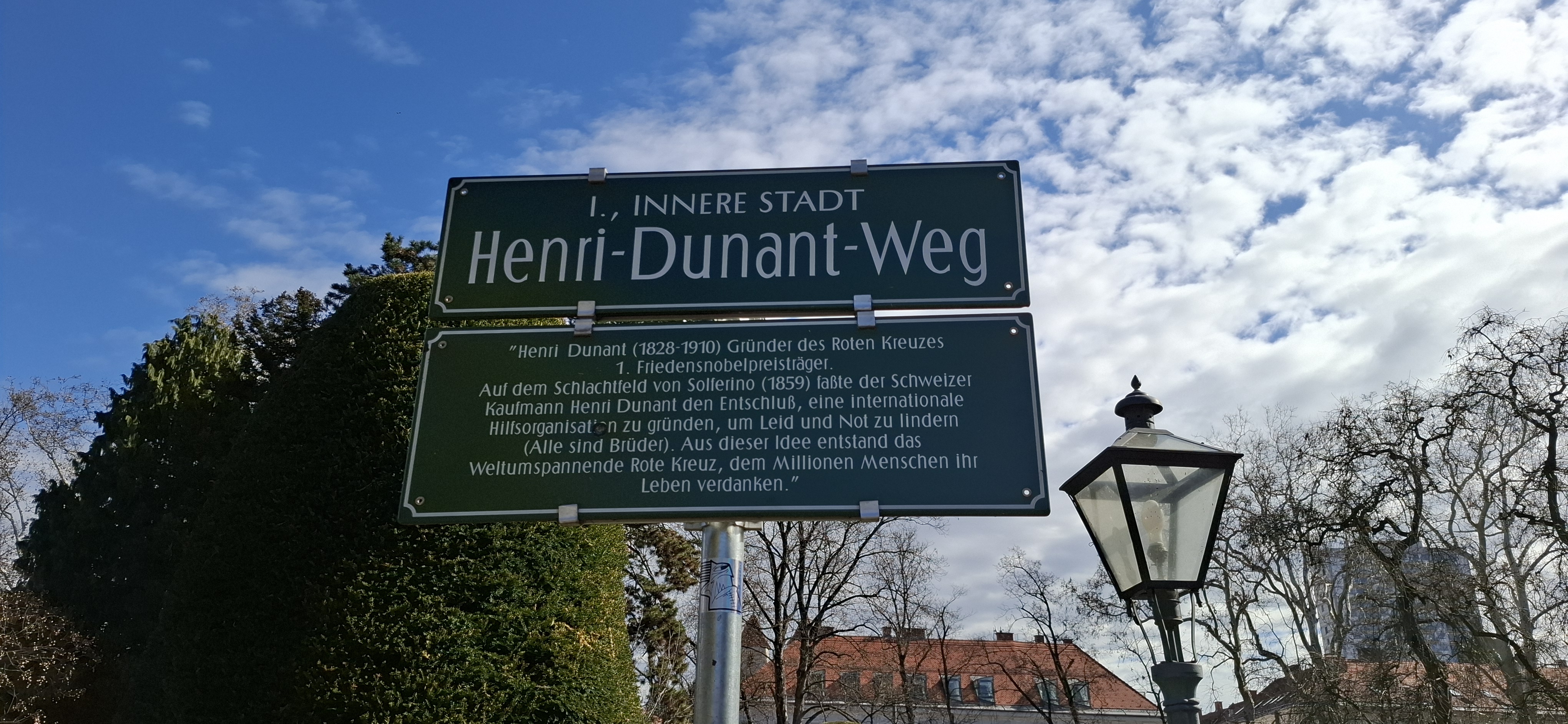
└─ Too many buildings, same height
Just before moving to Graz, I had finished reading Cache Lake Country: Life in the North Woods, which suggests a simple technique to orient yourself in any place: pick a tall building and use it as a reference point.
The problem I faced in Graz was that all the buildings are the same height, and very low.
Later, I found out that this is because Graz is a UNESCO World Heritage site, which means buildings can’t be torn down and replaced with new ones.
So the city is full of beautifully preserved imperial buildings, and I guess that’s a fair excuse for making me feel lost every time I step outside.
That said, it’s actually quite easy to get around in Graz, I’m just really bad at directions.
└─ Also: Kebab in Imperial Halls
Since buildings can’t be demolished, Graz is full of kebab shops nestled inside stunning, ancient architecture.
It’s amusing to imagine that, centuries ago, a composer might have sat in that very spot, sipping coffee while reviewing their symphony. In the same place where now the most common question is: "Spicy or not?"
Life is funny like that.
└─ Warning: snow from above
Because of the style of the buildings, the roofs are quite steep.
On top of that, they don’t extend much beyond the walls: they usually end halfway across the sidewalk.
Which means that when it snows, there’s a real risk of snow falling directly onto pedestrians.
So buildings display small brightly colored flags to warn people about the danger of snow.
To be honest, during the calendar year I spent in Graz, it barely snowed, just a few days, and not heavily.
I never really felt at risk, but I still appreciate the warning.
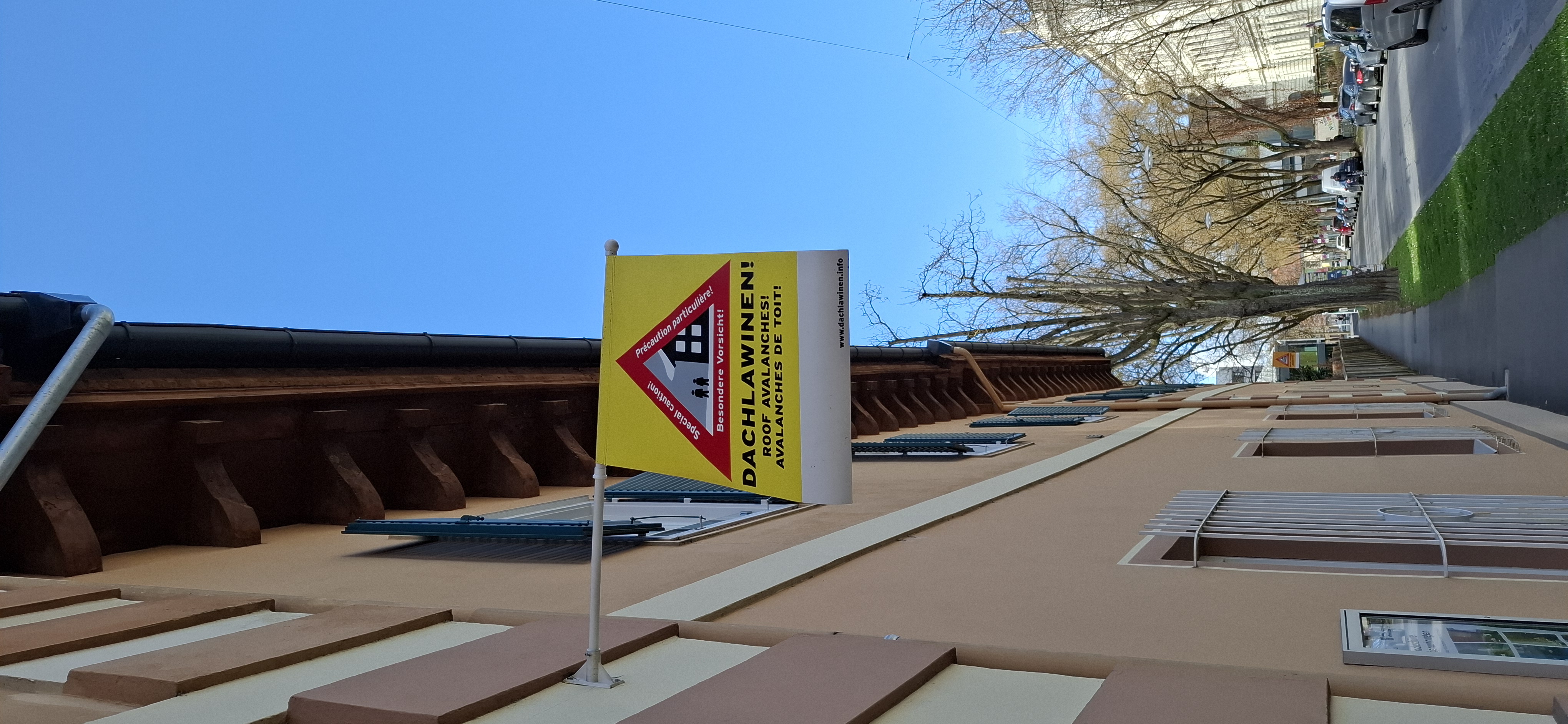
└─ Creative parenting on wheels
From what I’ve heard from people who actually use it, public transportation in Graz isn’t great.
As a result, many people rely on cars (clogging up the roads) and even more people rely on bikes.
To avoid letting their kids ride on the street, parents have come up with a whole range of alternative solutions that I’ve never seen in Italy. To be honest, to me these setups look more dangerous than just letting kids ride their bikes on the road, but people like that, so who am I to judge?
└─ Austrian floor numbering
This will save your life.
From the Erdegeschoss (ground floor), two different numbering systems start:
- Obergeschoss XYZ: corresponds to the standard floor numbering, meaning the ground floor is "0", followed by "1 OG", "2 OG", etc.
- Untergeschoss XYZ: corresponds to negative numbering, meaning the "-1" floor is called "1 UG".
How intuitive...
└─ Little Doors
In Graz, outside the entrance of apartment buildings, there are small square doors that lead to a tiny cellar where trash bins are typically stored. These doors come in various shapes and sizes.
I couldn’t find any information online, but my impression is that they’re a remnant from the past.
■ Italian things
└─ The waiters hate you (they don’t)
In Italy, when you walk into a restaurant, the waiter greets you warmly, shows you to a table, brings the menus, all with the classic Italian hospitality and smile.
Not in Austria.
The first time I went to a restaurant with my parents, we asked: "There are three of us, is there a table available?"
The waitress looked at the empty restaurant, looked at us: "Yes."
We asked: "Where can we sit?"
She looked at the empty restaurant again, looked at us: "Wherever you want."
We asked: "Can we sit there?"
She didn’t look at the restaurant anymore. She looked at us: "Yes."
We had to go to the table on our own.
It was the moment I started looking at the world fully aware of being Italian (and that the world isn’t necessarily like Italy).
└─ Austrian bureaucracy is surprisingly manageable
Now that I’m dealing with all the paperwork to return to Italy and start an internship, I realize how easy it was to handle both work-related and general administrative tasks in Austria.
Most of the time, all it took was a document, a signature, and showing up at the right office.
A good portion of the information needed to complete procedures or book appointments was available in English, and the rest was easy to translate with a browser extension.
And if something wasn’t clear, you could simply ask a colleague and they would usually be able to help.
In Italy, bureaucracy is so complicated that even experienced Italians don’t know how to navigate it.
└─ The coffee problem
I’m Italian.
We pay €1.20 for a coffee.
And it’s good.
Here, it’s at least €3 and it comes from a machine.
And tastes bad.
The fun thing is that the cost of coffee is not a continuous function.
Right before the border, it’s €1.20, right after, it’s €3.20.
└─ Bausatzlokale
It’s a restaurant chain that takes over old restaurants, keeps their original names, and adds the word Bausatz.
The idea behind it is quite interesting and it works well: every restaurant in the chain, regardless of what it used to be, now serves the same standardized menu.
(The drinks menu is more specialized depending on the previous management: some places are beer-focused, others lean toward pub-style drinks.)
The special feature (and the reason behind the name Bausatz, which means "kit" or "assembly set") is how you order: you fill out a paper sheet by ticking off the ingredients you want.
This makes ordering easier for customers (you just hand over the sheet) and simplifies food preparation. Since everything is standardized, there’s no need for an elaborate menu or experienced chefs. Pretty much any student can handle it, and Graz is full of students.
Of course, the food is just “ok”, but it’s cheap with student-friendly prices.
I think this model has solved the biggest problems restaurants faced when Graz became a strongly university-oriented city: low pricing and non-specialized staff.
This approach to dining also highlights, once again, the cultural difference with Italy, where small, often family-run restaurants are more common and appreciated.
I’m quite sure that a business model like this would fail in Italy, where going out to eat is often seen as a special occasion, unlike in Austria, where it feels more like a casual, everyday thing.
■ I-am-stupid things
└─ Silly names of plants that make me laugh
There’s a botanical garden near where I lived, and before leaving it seemed silly not to visit it.
And it was as boring as I expected.
But I can say that I’ve realized I will never become a gardener or a botanist.
To avoid wasting time, I took the opportunity to create this gallery to help those looking for reasons to call me an idiot:
